FOSTERING COMMUNITY AMONG IRANIAN-AMERICAN WOMEN
In June, I attended the first-ever Iranian-American Women’s Leadership conference on the East Coast, co-hosted by the Iranian-American Women Foundation (IAWF), The World Bank/IMF Iranian Staff Club, and the Persian Gender Network. Hundreds of Iranian-American women The conference was intended to inspire and connect women of all ages, professions, and political persuasions, who were united by a common heritage. These were among goals set forth by Mariam Khosravani, who co-coordinated the event and established IAWF to link generations of Iranian-American women and provide a space for mentoring, exchange, and empowerment.
The event featured many distinguished panelists, among them astronaut Anousheh Ansari, healthcare innovator and PPO pioneer Nazie Eftekhari, Woodrow Wilson International Center for Scholars Middle East Program Director Haleh Esfandiari, and CNN Worldwide Senior Vice President Parisa Khosravi. The conference featured more than ten substantive panels, including forums on women in entrepreneurship in the US and Iran and women in politics and public policy, as well as practical sessions on health and wellbeing and best practices for applying for a Fulbright grant.
Women’s Learning Partnership President and former Iranian Women’s Affairs Minister Mahnaz Afkhami spoke on a panel about women’s development and empowerment, and during the luncheon plenary she discussed a story from her book “Women in Exile” about her sister’s flight from oppression in Iran and her subsequent life in exile. (Ms. Afkhami also initiated lighthearted celebration during lunch, persuading a large crowd of women to get up on stage and dance to Celine Dion!).
Many women showed admirable dedication to mentoring the next generation of Iranian-American women, such as World Bank Senior Advisor Nadereh Chamlou, who co-coordinated the event and who leads the World Bank’s Persian Gender Network and The World Bank/IMF Iranian Staff Club. NPR News Senior Producer Davar Ardalan has also mentored young Iranian journalists, an effort she discussed in a session on women in digital media. Throughout the day and in the spirit of mentoring, especially during the Lead Like a Woman session, speakers offered sage advice, told personal anecdotes, and recounted lessons learned along their own paths to success. The women advised young Iranian-American professional women to pursue their passions, to cherish their traditions and pass them onto the next generation, to support and mentor other women, to engage civically, and to remember that Iranian-American women are stronger as a community than as individuals.
I left the conference feeling both connected to my culture and proud to be a member of such a unique and vibrant community. I was inspired by so many women of my mother’s and grandmother’s generation. Yet, I was also saddened to realize that most in the group would never return to the Iran they once knew, nor would I ever be able to experience it. While the conference served as a reminder of that estrangement, it also rendered attachment to the Iranian-American community and all of our professional and civic contributions that much more significant.
About the author: Layla Yousefi Moughari Women's Learning Partnership Program Associate International Women’s Democracy Network Coordinator

